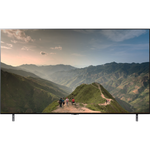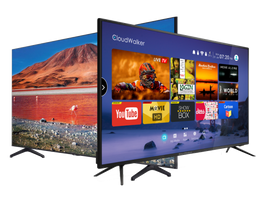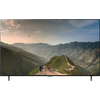A comparison of specs, key information, reviews, and best pricing from top retailers
Last updated -- hours ago | Report incorrect information
What we think

The PerfectRec TV team Learn more
Updated January 10, 2024·
If you prioritize overall picture quality and gaming, the LG QNED90 is the superior choice, as it has better performance in these areas. It's also better equipped for bright rooms due to its higher bright room performance score. However, it comes at an upper midrange price, significantly higher than the LG UR9000. On the other hand, the LG UR9000 is more affordable, has a slightly better performance for watching sports, and is fairly recent. But it significantly underperforms in dark room conditions compared to the QNED90. Choose the UR9000 if you're on a tighter budget and mostly watch sports or use your TV in well-lit environments. Give Feedback
this description is based on the product variant with some specs and product variant with some specs. At the time of writing, the variant with some specs cost some dollars and the variant with some specs cost some dollars.
Advantages of the LG QNED90 (LCD)
- Good for bright room
- Good for dark room
- Very good for gaming
- Very good for news, talk, & other TV
- Good for cartoons & animation
- Good for use as monitor
- Good for upscaling
Advantages of the LG UR9000 (LCD)
- Very good motion processing
Key differences
Picture Quality
7.3


5.4
5.60/10
CONTRAST
3.31/10
7.4/10
COLOR VOLUME SCORE
6.0/10
LED FALD
PANEL TYPE
LED
IPS
PANEL SUB-TYPE
IPS
The LG QNED90 (LCD) has good picture quality, while the LG UR9000 (LCD) has poor picture quality.
Movies & TV
6.8


5.1
5.60/10
CONTRAST
3.31/10
5.3/10
BLACK UNIFORMITY
5.3/10
7.5/10
UPSCALING
5.7/10
Yes
HDR10 SUPPORT
Yes
No
HDR10+ SUPPORT
No
Yes
DOLBY VISION SUPPORT
No
The LG QNED90 (LCD) is only fair for movies & TV, while the LG UR9000 (LCD) is poor.
The LG QNED90 offers a much better contrast, more effective local dimming, and superior black uniformity than the LG UR9000, making it more suitable for movies where these aspects are pivotal to image quality. Meanwhile, the LG UR9000, with its inferior contrast and poor local dimming, is less capable of delivering the deep blacks and detailed shadows that are essential for a good cinematic experience.
Gaming
8.1


5.7
7.6/10
RESPONSE TIME SCORE
6.0/10
8.0/10
INPUT LAG SCORE
10.0/10
7.5/10
MOTION PROCESSING
8.0/10
70.0/100
GAMING LOCAL DIMMING
15.0/100
8.6/10
GAME HDR BRIGHTNESS SCORE
6.3/10
The LG QNED90 (LCD) is very good for gaming, while the LG UR9000 (LCD) is poor.
Cartoons & Animation
7.6


5.8
7.8/10
COLOR GAMUT SCORE
5.8/10
7.4/10
COLOR VOLUME SCORE
6.0/10
8.7/10
SDR BRIGHTNESS SCORE
6.6/10
7.6/10
COLORS OUT OF THE BOX SCORE
8.5/10
5.8/10
GRAY UNIFORMITY
7.7/10
The LG QNED90 (LCD) is good for cartoons & animation, while the LG UR9000 (LCD) is poor.
The LG QNED90 produces better colors out of the box and has a wider color gamut, making it suitable for watching cartoons and animation with vibrant and accurate colors. In contrast, the LG UR9000 has poorer color performance out of the box and a narrower color gamut, resulting in less appealing animation viewing where color vibrancy and accuracy are important.
News, Talk, & Other TV
8.0


5.5
8.7/10
SDR BRIGHTNESS SCORE
6.6/10
7.5/10
UPSCALING
5.7/10
The LG QNED90 (LCD) is very good for news, talk, & other TV, while the LG UR9000 (LCD) is poor.
The LG QNED90 has better SDR brightness and more effective upscaling, resulting in clearer images for standard definition content, which includes standard news broadcasts and talk shows. In contrast, the LG UR9000 has lower SDR brightness and less capable upscaling, which might make such content appear less clear and vibrant.
Bright Room
7.7


5.8
7.7/10
VIEWING ANGLE
7.4/10
8.7/10
SDR BRIGHTNESS SCORE
6.6/10
8.3/10
HDR BRIGHTNESS SCORE
6.2/10
6.0/10
REFLECTIONS SCORE
6.6/10
The LG QNED90 (LCD) is good for bright room, while the LG UR9000 (LCD) is poor.
The LG QNED90 handles bright rooms efficiently due to its higher SDR and HDR brightness, combined with better reflection handling, enhancing visibility even in well-lit environments. In contrast, the LG UR9000 struggles more with reflections and has significantly lower brightness levels, reducing its suitability for bright rooms despite its competencies in color performance.
Cost
$2,000


$547
$0
$500
$1,000
$1,500
$2,000
$2,500
$3,000
The LG QNED90 (LCD) has a price of $2,000 and the LG UR9000 (LCD) costs $547.

Let Us Help Find Your Perfect TV
Find your new TV
Key similarities
Sports
6.7


6.8
7.5/10
MOTION PROCESSING
8.0/10
120Hz
REFRESH RATE
60Hz
8.0/10
INPUT LAG SCORE
10.0/10
7.5/10
UPSCALING
5.7/10
8.7/10
SDR BRIGHTNESS SCORE
6.6/10
Yes
HLG SUPPORT
Yes
The LG UR9000 (LCD) and LG QNED90 (LCD) are both only fair for sports.
The LG QNED90 has better viewing angles and motion processing, beneficial for sports viewing in broader seating arrangements or fast-paced action, but its reflection handling is only fair, which can be problematic in well-lit rooms. Conversely, the LG UR9000 has a slightly better response time, which is great for fast motion, but its viewing angles and reflections handling are also rated as fair, presenting similar limitations in bright environments and with side seating.
Give feedback
We’re constantly working to improve.
How the LG QNED90 (LCD) and the LG UR9000 (LCD) compare to other TVs
Spec Comparison
| LG QNED90 (LCD) | LG UR9000 (LCD) |
GENERAL | |||
|---|---|---|---|
| Price | |||
$2,000 | $547 | ||
Brand | |||
Brand | LG | LG | |
Release Date | |||
Release Date | April 1, 2021 | March 4, 2023 | |
Full name | |||
Full name | 65QNED90 | 65UR9000 | |
Screen Size | |||
Screen Size | 65" | 65" | |
Screen Resolution | |||
Screen Resolution | 4K | 4K | |
TV FEATURES | |||
|---|---|---|---|
Operating System | |||
Operating System | webOS | WebOS | |
Sound Quality Score | |||
Sound Quality Score | 7/10 | 5.4/10 | |
NextGen Ready | |||
NextGen Ready | No | No | |
HDMI Ports | |||
HDMI Ports | 4 | 3 | |
Coax Ports | |||
Coax Ports | 1 | 1 | |
DISPLAY QUALITY SCORES | |||
|---|---|---|---|
Picture Quality Score | |||
Picture Quality Score | 7.4/10 | 5.5/10 | |
Bright Room Score | |||
Bright Room Score | 7.8/10 | 5.9/10 | |
Gaming Score | |||
Gaming Score | 8.1/10 | 5.8/10 | |
Movies & TV Score | |||
Movies & TV Score | 6.8/10 | 5.1/10 | |
Sports Score | |||
Sports Score | 6.8/10 | 6.8/10 | |
PHYSICAL | |||
|---|---|---|---|
Dimensions w/o Stand (H x W x D) | |||
Dimensions w/o Stand (H x W x D) | 32.6" x 56.9" x 1.1" | 33.1" x 57.3" x 1.2" | |
Dimensions with Stand (H x W) | |||
Dimensions with Stand (H x W) | 35.4" x 56.9" | 35.6" x 57.3" | |
Weight without Stand | |||
Weight without Stand | 57.8 lbs | 52 lbs | |
VESA Mount | |||
VESA Mount | 400 X 400 | 300 x 300 | |
DISPLAY | |||
|---|---|---|---|
Color Depth | |||
Color Depth | 10 bit | 10 bit | |
Black Frame Insertion | |||
Black Frame Insertion | Yes | No | |
Auto Low Latency Mode | |||
Auto Low Latency Mode | Yes | Yes | |
Contrast | |||
Contrast | 5.6/10 | 3.3/10 | |
Local Dimming | |||
Local Dimming | 6.5/10 | 3.3/10 | |
SOUND | |||
|---|---|---|---|
Speaker Setup | |||
Speaker Setup | 2.2 | 2.0 | |
Speaker Power | |||
Speaker Power | 40 W | 20 W | |
Dolby Atmos | |||
Dolby Atmos | Yes | Bypass only | |
DTS:X | |||
DTS:X | No | No | |
Shopping
LG QNED90 (LCD)
See more
Dig into reviews and images
Home Media Entertainment
Stratos Kampourogiannis | September 2021
"When it comes to HDR brightness it has very bright highlights and impressive HDR. In terms of design the QNED90 looks beautiful. The TV did great with fast response times, excellent reactions and instant rendering of all our commands. If you look for a good performing premium 4K TV the QNED90 ticks all the boxes."
Get a great deal on the LG QNED90 (LCD) or the LG UR9000 (LCD)
About LG
LG, a prominent TV brand from Korea, has played a significant role in popularizing OLED TVs. OLED technology is hailed as the future of TV technology. Their TVs employ WebOS, a proprietary smart TV software that not only offers seamless functionality but also includes gaming-specific features, earning praise from players worldwide. Often regarded as the gateway to unparalleled viewing experiences, LG's mid-range OLEDs come highly recommended, making them a worthwhile investment for those willing to stretch their budget for superior quality.
Give feedback
We're constantly perfecting our model
TV guides you might be interested in
More comparisons for you
FAQs
FAQs about TVs
Why trust us
This information was produced and vetted by the PerfectRec TVs team. We are a product research and recommendation organization that meticulously reviews and evaluates the latest TV information and makes it digestible for you.
By the numbers
385
TVs evaluated
33,110
TVs stats compiled
21
Proprietary TVs ratings developed
122,430
Recommendations made
18,365
Consumer hours saved
About the TV team
Joe Golden, Ph.D
CEO and TVs Editor
Joe is an entrepreneur and lifelong electronics enthusiast with a Ph.D in Economics from the University of Michigan.
Jason Lew
Staff Expert & Software Engineer
Jason is a staff expert and software engineer that has been making laptop recommendations for 7 years and moderates one of the largest laptop subreddits.
Chandradeep Chowdhury
Staff Expert & Software Engineer
Chandradeep is a staff expert and software engineer and expert in televisions and monitors. He’s been making monitor recommendations for ten years.
Jaime Roldán
TVs Expert
Jaime is a Colombia-based TV expert. He is an electronics engineer with 8 years of experience in the telecom sector and has been making TV recommendations for 12 years.







